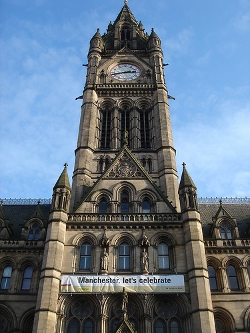 Jonathan Carr-West notes that the plans for localism promise to give councils real power to engage communities and strengthen local democracy, but the prospect of regional variance and inequality will test the government’s true commitment to the cause.
Jonathan Carr-West notes that the plans for localism promise to give councils real power to engage communities and strengthen local democracy, but the prospect of regional variance and inequality will test the government’s true commitment to the cause.
There’s a row brewing over the government’s plans to reform town hall financing. Announced before Christmas the plans, which received a second reading in Parliament last Tuesday night, have started to draw criticism from across the sector.
Reform of local government finance has been a long running (seemingly endless) debate, likened by some to the Schleswig-Holstein question: equally complex though arguably of less general interest. The Lyons and Layfield enquiries have come and gone almost without trace. The remit of the current reforms was therefore kept deliberately narrow and practical. Its expressed intention was to allow the retention of business rates to create a system that is more effective and coherent in building growth, attracting business, sharing large new financial risks and ensuring quality delivery and value for money. The government proposes to do this by allowing councils to retain a greater proportion of business rates and to keep any growth in business rates they can generate.
However, the detail of these proposals may look and feel very different in different parts of the country. The government has attempted to balance incentives for local growth with a degree of equalisation through a system of top ups and tariffs. Those councils who currently have a smaller business rate than their current spending will receive a top up to bring their income up to the current level, while those who currently bring in more business rates than they spend will pay a tariff. The rates of both top up and tariff will be fixed so that councils can keep any growth in their rates base. We’ve yet to see detail on the split between the local and central shares of business rates and on the level of top ups and tariffs.

Criticism has come from all directions: London Councils have complained that the scheme will not allow councils to keep enough profit from growth to be worthwhile, while SIGOMA (the Special Interest Group of Municipal Authorities, representing 46 metropolitan and urban councils) has warned that it will entrench and deepen existing regional inequalities – a criticism echoed by opposition MPs. Many within local government are anxious about how the scheme will work over time and whether the top ups will retain their value. Others fear a permanent hierarchy between rich ‘tariff councils’ and poor ‘top up councils’.
Eric Pickles has countered the critics by arguing that the reforms are about increasing overall levels of growth not simply redistributing a pot of fixed size. Be that as it may, it’s certainly true that we need further details of the levels at which tariffs and top ups will be set. It is essential for local government to have confidence that these proposals will provide them with a stable foundation at a time of financial uncertainty. It’s also true, as Hilary Benn pointed out in the parliamentary debate, that the powers to set rates and mechanisms all reside firmly with the secretary of state, which hardly seems devolutionary.
Nonetheless, I think that localists should welcome the ambition behind the plans. Economic localisation is a first step in a fundamental shift in the centre of political gravity whereby the local becomes the primary site of political and economic identification. Giving locally elected councils real powers and incentives to shape local economies is a crucial step towards re-energising local democracy and getting people more engaged with a local political process that will now seem more consequential. It’s also a long overdue recognition of the key role that local councils have in economic development, especially at this crucial time in our economic recovery.
We shouldn’t pretend, however, that there will not be winners and losers. That should be fine, provided local authorities and local communities have sufficient agency to make local choices that will improve their prospects. It’s important therefore that both government and local authorities treat finance reform as part of a package of measures to engage communities and strengthen local democracy. These initiatives will become more important than ever, as varying outcomes around the country will be a real test of the government’s true commitment to localism.
Please read our comments policy before posting
________________________________________
 Jonathan Carr-West – Local Government Information Unit
Jonathan Carr-West – Local Government Information Unit
Jonathan Carr-West is a director at the Local Government Information Unit, where he leads the Unit’s policy team which seeks to strengthen local democracy by developing new thinking and practice on how local communities can have more influence over the areas they live in and the services they use and how local government can help them to do so. Follow him on Twitter @joncarrwest.






Thanks for this Jonathan – agree with with the tensions – opportunities and challenges – that you identify. What is important is what this means in practical terms at a local level. I think that for many local authorities this will require a significant cultural change in how they work at the moment. For me one of the key strands is how local government can develop a way of working that is built on co-production with communities – particularly those that are often easily ignored. Such and approach could lead to better and more relevant local approaches to meeting need and these alliances should also provide the basis for more effective joint challenge of government policy.